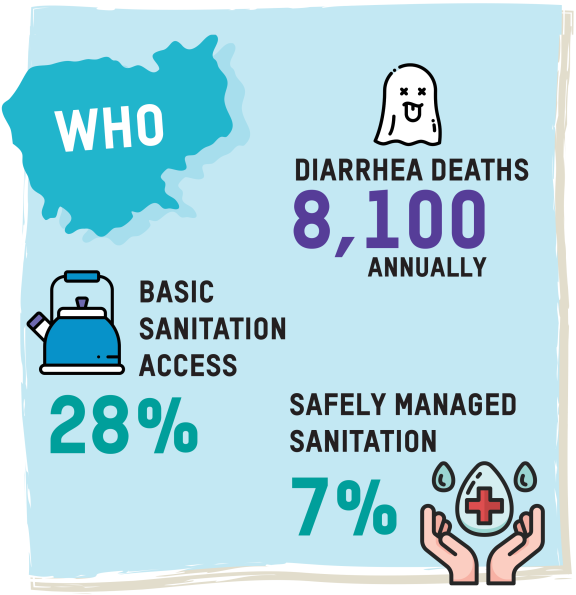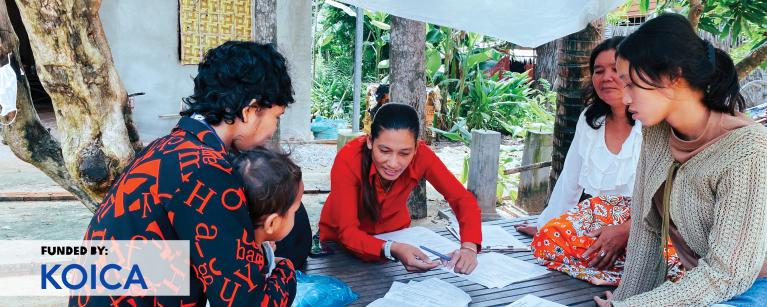
Context
The Fostering Inclusive and Sustainable WASH in the Tonle Sap (FOWASH) project addresses critical issues related to water, sanitation, and hygiene (WASH) in rural of Cambodia. According to the World Health Organization (WHO), unsafe WASH practices contribute significantly to the country's high diarrheal disease burden, with approximately 69% of cases linked to inadequate water and sanitation conditions.
In 2019, it was reported that 34% of rural households in Cambodia lacked access to safe water, endangering the health of 2 million people. In addition, The WHO has identified Cambodia as having the highest mortality rate from diarrhea in Southeast Asia, with 8,100 deaths annually. Currently, only 28% of the population has access to basic sanitation, and a mere 7% have safely managed sanitation services, highlighting the urgent need for enhanced WASH conditions
Approach
- Improving access to sustainable and clean water in vulnerable and hard to reach communities impacted by climate change in the Tonle Sap Biosphere Reserve (TSBR).
- Increasing awareness and practice of and improved access to hygiene and sanitation of vulnerable and hard to reach communities impacted by climate change in the Tonle Sap Biosphere Reserve (TSBR).
This project will be implemented in 14 communes across 10 districts in Siem Reap and Battambang province. It is designed to benefit approximately 106,455 individuals (50% women and girls.) We will prioritize vulnerable groups including women and persons with disabilities. Oxfam will enhance the capacity of local stakeholders to ensure gender equality and inclusion, facilitating multi-stakeholder events for advocacy and information sharing. We will establish water stations, provide sanitation education, and conduct behavior change events to encourage proper hygiene practices.
Key Indicators
Outcome 1: By 2026, the project aims to provide direct beneficiaries to 6,600 households with access to safe water and establish 11 water committees for community management.
Outcome 2: Increase the number of direct households using improved latrines and to raise the percentage of villagers practicing handwashing at critical times for 1, 300 households.
Funded by
Korea International Cooperation Agency (KOICA)
Implementing partner
Human Resource and Rural Economic Development Organization (HURREDO)
Strategic partners
• Ministry of Rural Development
• Provincial Department of Rural Development
• Provincial Department of Education Youth and Sport
• Provincial and district government office of the Ministry of Interior
• Local authorities
• Primary schools
